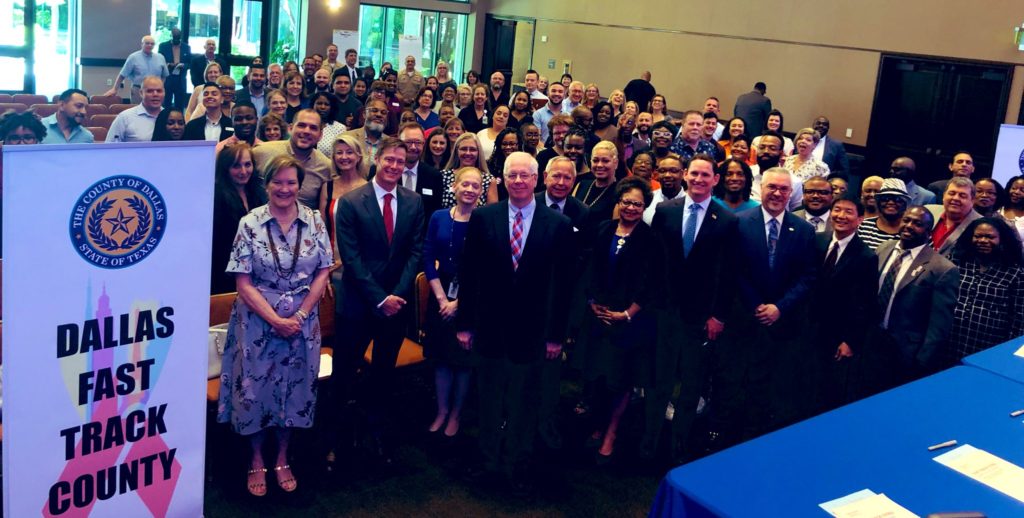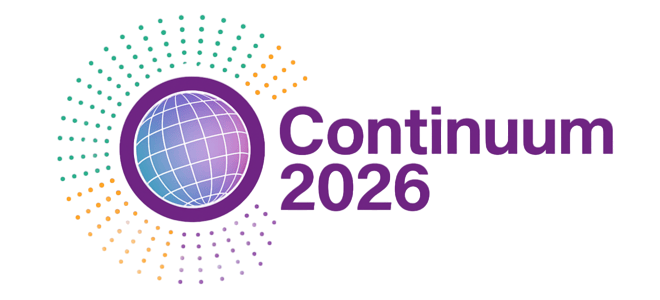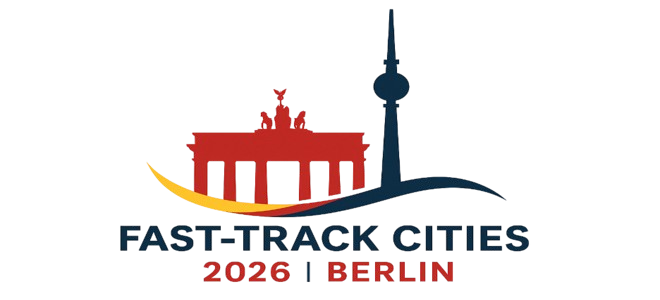Dallas County Expands Texas Fast-Track Network Against HIV
August 27, 2019 — Dallas County, Texas joined an expanding network of US counties that are part of the Fast-Track Cities initiative yesterday as Dallas County Judge Clay Jenkins signed the Paris Declaration on Fast-Track Cities. The ninth-largest county in the United States now joins two other counties in Texas — Bexar County (San Antonio) and Travis County (Austin) — in a push by the International Association of Providers of AIDS Care (IAPAC) to integrate counties into an international network of more than 300 cities and municipalities that are working to end urban HIV epidemics. The cities of Addison, Balch Springs, Dallas, DeSoto, and Grand Prairie accompanied Dallas County in signing the Paris Declaration during a community kick-off event in Dallas.
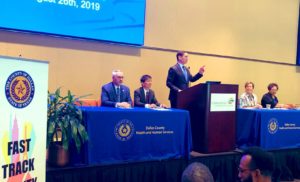
Judge Jenkins signed the Paris Declaration at the Communities Foundation of Texas alongside IAPAC President and CEO Dr. José M. Zuniga. He spoke about the experience of people living with and affected by the HIV epidemic in Dallas County and how the Fast-Track Cities objectives can make an impact in their lives.
“By ensuring that 90 percent of people living with HIV/AIDS know their status, 90 percent are receiving appropriate treatment, and 90 percent have viral loads that are undetectable and therefore cannot be transmitted; we can end the HIV epidemic by 2030. That is transformative for our community, especially the approximately 18,000 people in Dallas County living with HIV/AIDS and their families,” said Judge Jenkins.
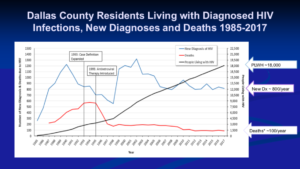 Dallas County Health and Human Services Director Dr. Philip Huang spoke at the signing ceremony, which included local mayors, healthcare providers, and community organizations. Dr. Huang said that the county has set a goal of reducing the incidence of new HIV infections by 50%. Dallas County is also one of 50 jurisdictions that are being targeted by the Trump administration’s strategy to end the HIV epidemic in the United States.
Dallas County Health and Human Services Director Dr. Philip Huang spoke at the signing ceremony, which included local mayors, healthcare providers, and community organizations. Dr. Huang said that the county has set a goal of reducing the incidence of new HIV infections by 50%. Dallas County is also one of 50 jurisdictions that are being targeted by the Trump administration’s strategy to end the HIV epidemic in the United States.
“We welcome Dallas County’s commitment to fast-track its HIV response in solidarity with Bexar County and Travis County. Accelerating local HIV responses will contribute to our aim of ending the HIV epidemic in Texas and the United States,” said Dr. Zuniga. “We also thank the Mayors of various cities, including Dallas, who are joining Judge Clay Jenkins in signing the Paris Declaration on Fast-Track Cities. Your leadership is important to facilitate the active engagement of all stakeholders, especially affected communities, and to eliminate HIV-related stigma that can impede progress towards the goal of ending the global HIV epidemic by 2030.”
Dallas County’s efforts through the Fast-Track Cities initiative align well with the federal strategy to end the US HIV epidemic and support the “Achieving Together Texas” community to end the HIV epidemic in Texas. Community leaders from fellow and prospective Fast-Track Cities in Texas — Austin, Houston, and San Antonio — sent messages of support to the welcome Dallas County to the Fast-Track Cities network.
“We are here with you,” said Crystal Townsend, the coordinator of End HIV Houston. “We join you in this movement, and this is just the beginning.” IAPAC is in discussions with Harris County and Houston officials about recruiting both the county and city, since an estimated 50% of people living with HIV in Texas reside in Dallas and Harris Counties.
